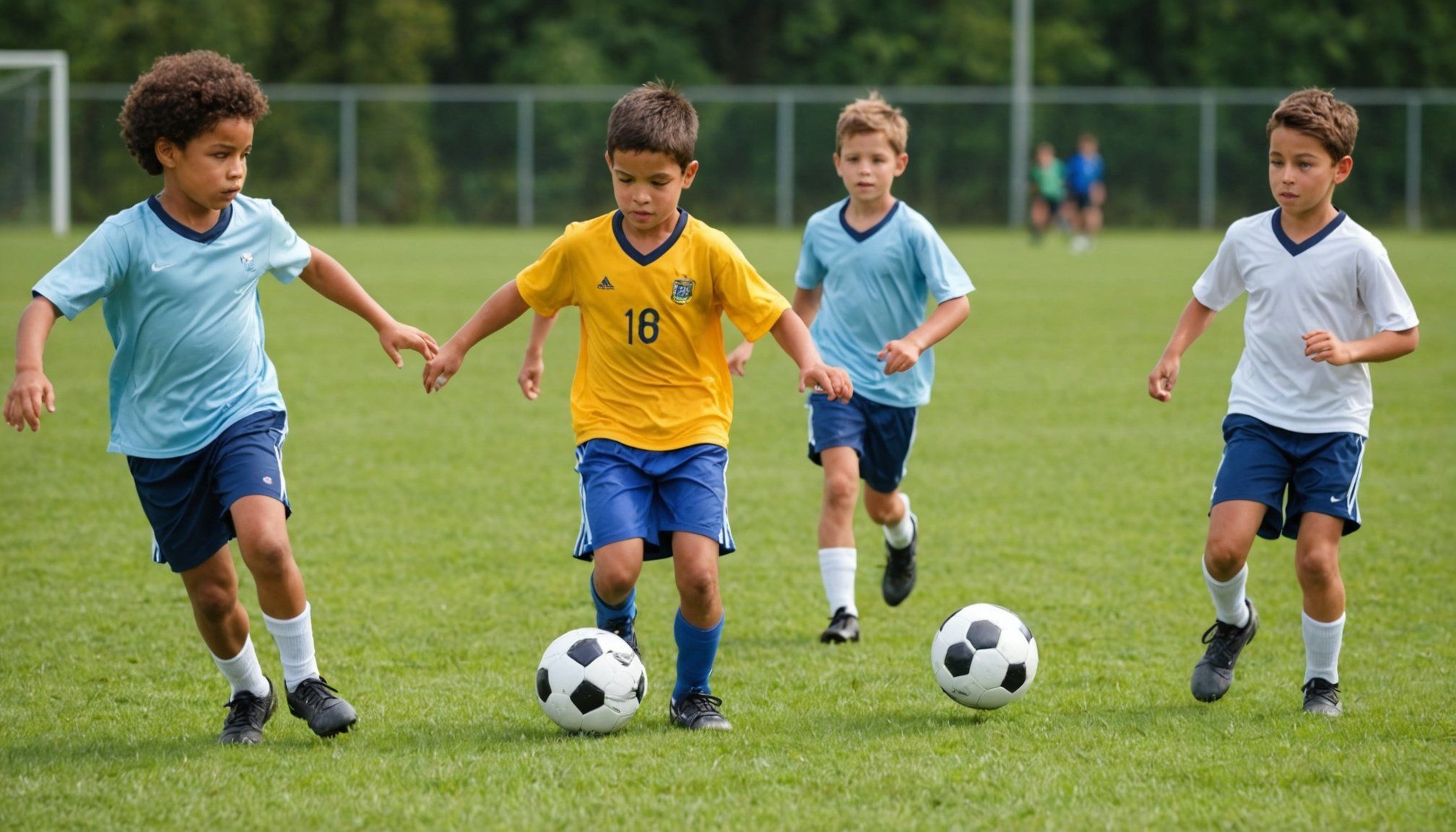In today’s rapidly evolving world, the importance of physical activity and sports in fostering children’s social development cannot be overstated. As guardians of young minds, it is essential to understand the multitude of benefits associated with encouraging children to actively engage in sporting activities. These benefits extend beyond the obvious gains in physical health, reaching into the social and emotional realms, which are pivotal in shaping a well-rounded individual. Through participation in sports, children learn invaluable skills that can positively influence their behavior and interactions both in school and later in life. As we explore this topic, we will delve into how sports contribute to building character, enhancing teamwork, and developing social competencies.
Building Character and Enhancing Life Skills
Participating in sports offers a unique platform for children to build character and develop essential life skills. As they engage in physical activities, they are simultaneously learning about discipline, responsibility, and perseverance. These skills are not only applicable within the sporting arena but also play a crucial role in their overall development.
Additional reading : What specific drills can improve hand-eye coordination for racquet sports like tennis or badminton?
Discipline and Responsibility
The structured nature of sports requires children to adhere to a set of rules and guidelines, fostering a sense of discipline. Regular practice sessions, scheduled matches, and the responsibility of being part of a team teach them to manage their time effectively and prioritize their commitments. This discipline becomes an integral part of their behavior, influencing how they approach academic and personal challenges.
Perseverance and Resilience
Sports are inherently challenging, with children frequently facing obstacles and setbacks. Whether it’s losing a game or struggling to master a new skill, these experiences teach children the value of perseverance. Overcoming these challenges builds resilience, enabling them to approach life’s hurdles with a positive and determined attitude.
This might interest you : How does the environment play a role in the performance of athletes in outdoor sports?
In essence, sports provide a controlled environment where children can learn and apply these skills, molding their character and preparing them for the complexities of adulthood.
Social Integration and Teamwork
One of the most significant benefits of sports is its ability to facilitate social integration and teach the value of teamwork. In a team sport, every child is a crucial component, and success is contingent upon effective collaboration and communication.
Fostering Communication
Team sports encourage children to express themselves and listen to others, cultivating effective communication skills. This open dialogue is essential for formulating strategies, resolving conflicts, and achieving common goals. As children interact with peers, they learn to appreciate diverse perspectives, fostering an inclusive mindset.
Building Relationships
Through regular interactions on the field, children form strong bonds with their teammates. These relationships often extend beyond the sporting arena, contributing to a supportive social network. Such friendships are instrumental in building confidence, reducing feelings of isolation, and creating a sense of belonging.
Sports act as a microcosm of society, teaching children about cooperation, empathy, and the importance of working towards a shared objective.
Improving Emotional Health and Behavior
Engaging in sports can significantly enhance a child’s emotional health and positively influence their behavior. The dynamic nature of sporting activities provides an outlet for energy and stress, promoting a healthy mental state.
Boosting Confidence
The experience of setting goals and achieving them on the field boosts children’s self-esteem and confidence. As they witness their own progress and accomplishments, they develop a positive self-image. This newfound confidence often translates into other aspects of their life, encouraging them to embrace new challenges with assurance.
Managing Emotions
Sports also teach children how to deal with a range of emotions, from the thrill of victory to the disappointment of defeat. Learning to manage these feelings in a healthy way is crucial for emotional maturity. It fosters emotional intelligence, allowing children to navigate social situations more adeptly.
Overall, physical activity through sports serves as a natural antidepressant, reducing anxiety and improving mood, thereby enhancing a child’s behavior and emotional wellbeing.
Promoting Healthy Lifestyle Habits
Encouraging children to participate in sports lays the foundation for a lifetime of healthy habits. The physical benefits of sports are well-documented, but the establishment of an active lifestyle goes beyond immediate health advantages.
Instilling a Love for Physical Activity
Children who regularly engage in sports are more likely to develop a genuine love for physical activity, which can prevent sedentary lifestyles associated with modern life. This affinity for activity often translates into adulthood, reducing the risk of health issues such as obesity and cardiovascular diseases.
Teaching Nutritional Awareness
Participation in sports raises awareness about nutrition and its impact on performance. Many young athletes become more conscious of their dietary choices, understanding the connection between what they consume and their energy levels and stamina.
Through sports, children learn the importance of maintaining a balanced diet and staying hydrated, setting the stage for a healthy lifestyle that extends beyond the playing field.
In conclusion, the advantages of participating in sports for children’s social development are manifold. Beyond the immediate health benefits, sports instill vital skills and values that shape a child’s character and future. From fostering teamwork and communication to enhancing emotional intelligence and building confidence, the lessons learned on the field are invaluable. By encouraging children to engage in sports, we are not only promoting a healthy lifestyle but also equipping them with the tools necessary for successful and fulfilling life. As guardians and mentors, it is our responsibility to guide them towards these enriching opportunities, ensuring they develop into well-rounded individuals capable of thriving in the diverse social landscape of the future. Embrace the power of sports, and watch as young minds flourish into leaders, team players, and compassionate members of society.











